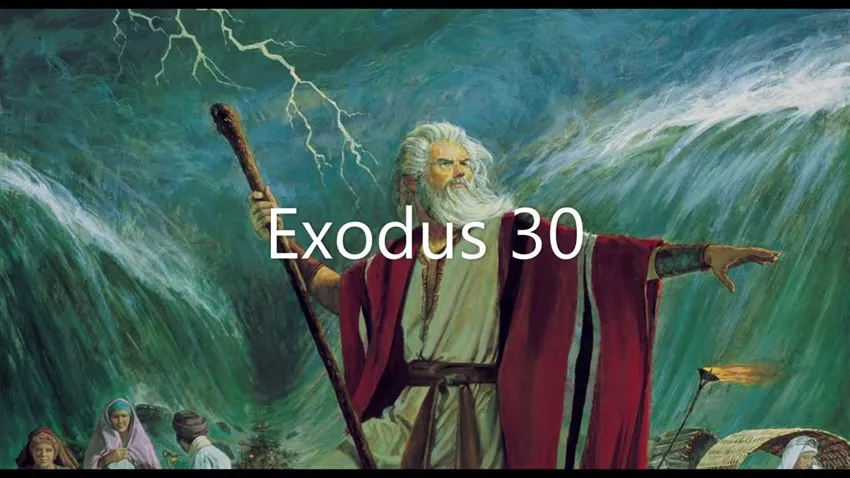Exodus Chapter 30 Summary
Exodus 30 provides detailed instructions regarding several key elements for the Tabernacle’s sanctification and the Israelites’ worship practices. The chapter begins with the command to build an altar for burning incense, made of acacia wood and covered with gold. The incense, to be burned daily, is to be composed of specific ingredients and is to be considered holy. God also institutes a census tax for the Israelites, with each person contributing a half-shekel to support the Tabernacle’s maintenance. Additionally, the chapter includes instructions for a bronze basin for ceremonial washing and a special anointing oil. These regulations underscore the importance of purity, sanctity, and reverence in approaching God, highlighting His holiness and the need for His people to honor Him with exactness in worship.
Bible Exodus Chapter 30
Welcome to read Exodus Chapter 30. Here is the list of Exodus Chapter 30:
What Does Exodus Chapter 30 Teach Us?
Exodus 30 provides key instructions related to the Tabernacle’s furnishings, the altar of incense, and the atonement for sin. This chapter highlights principles of holiness, worship, and the need for atonement. Here are some essential lessons that Exodus 30 teaches us:
1. The Importance of Prayer and Worship (Altar of Incense)
Exodus 30:1-10 describes the construction of the altar of incense, which was to be placed in front of the veil in the Tabernacle, near the Ark of the Covenant. The altar was to burn incense daily, symbolizing the prayers of the people ascending to God. This teaches us the importance of continual prayer and worship in our lives. Just as the altar was a place for incense to rise continually, our prayers should be constant, symbolizing our ongoing relationship with God (1 Thessalonians 5:17).
2. God Values Holiness in Worship
Exodus 30:34-38 provides instructions for the preparation of the holy incense to be used on the altar. The recipe was specific, and no one was allowed to imitate or create similar incense for personal use. This reflects God’s desire for His worship to be set apart and holy. It teaches us that worship should be sincere, pure, and free from distractions or personal agendas, focusing entirely on honoring God’s holiness. Our lives, like the incense, should be set apart for God’s glory (Romans 12:1).
3. The Necessity of Atonement for Sin
In Exodus 30:11-16, God instructs Moses to collect a census of the Israelites, with each person contributing a half-shekel as an atonement for their souls. This payment was a reminder of the need for atonement and the seriousness of sin. In the New Testament, we learn that Jesus Christ is the ultimate atonement for sin, and His sacrifice satisfies the need for redemption (1 Peter 1:18-19). The half-shekel offering points forward to the sacrificial work of Christ, who paid the price for our sins once and for all.
4. The Role of the Anointing Oil (Exodus 30:22-33)
Exodus 30:22-33 gives instructions for the preparation of anointing oil that was to be used to consecrate the priests and the Tabernacle. The oil was holy, and only it could be used for anointing sacred items. This symbolizes the presence and empowerment of the Holy Spirit in the life of the believer. Just as the Tabernacle and its furnishings were consecrated by the oil, we, as Christians, are anointed by the Holy Spirit to be set apart for God’s service (1 John 2:27).
5. God’s Presence in the Tabernacle (Exodus 30:36-38)
The chapter concludes with a reminder that the incense and anointing oil were sacred and should not be used for any common purpose. This teaches us that God’s presence is holy and must be revered. As believers, we are reminded to approach God with awe and reverence, recognizing that He is both close to us and set apart in His holiness. This principle remains relevant in how we approach God in prayer, worship, and daily living.
Related topics:

